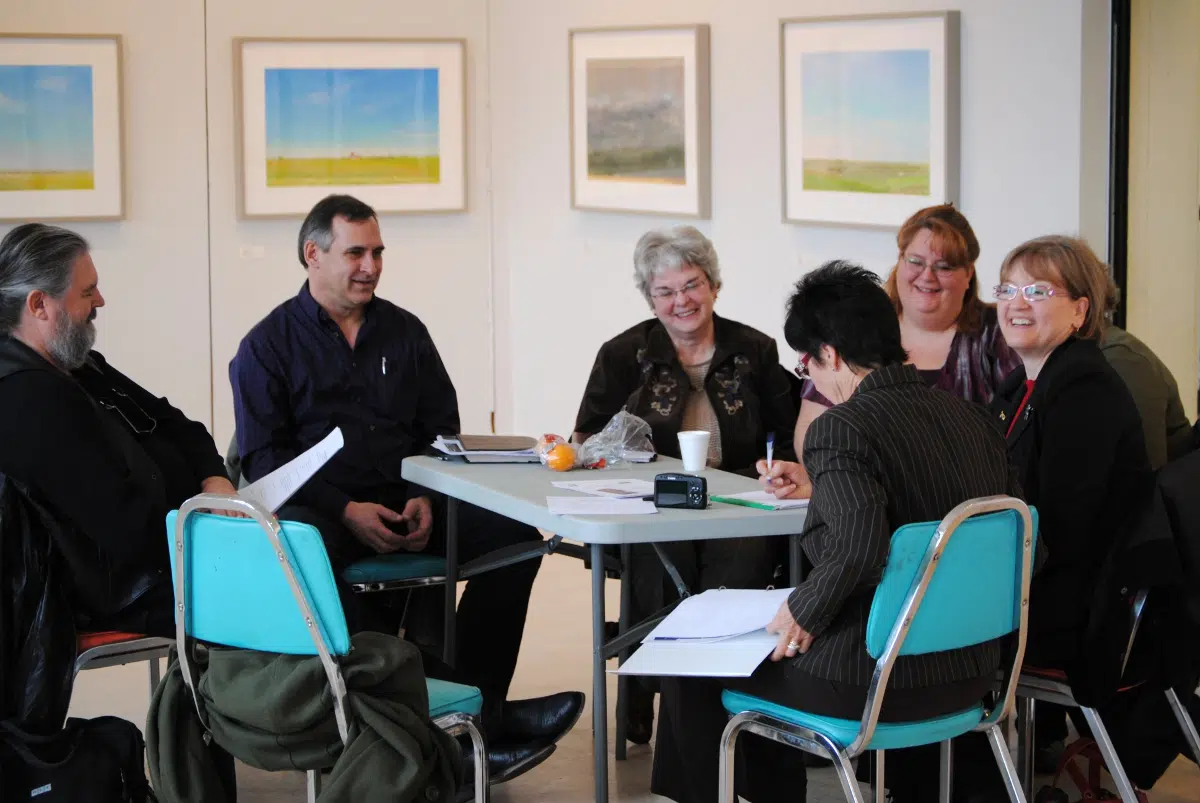
Model creates excitement in community groups
A sort of who’s who gathering of socially minded Prince Albert community members met at the Arts Centre on Tuesday.
Their purpose is to network, share information about what’s going on in the community and gather some insight into issues different organizations are facing.
The Community Networking Coalition (CNC) meets monthly but this latest gathering had an air of something extra special.
Police Chief Dale McFee gave a presentation to the group pertaining to the future of service delivery in the city. He spoke about the information and lessons learned from a recent trip to Scotland.


